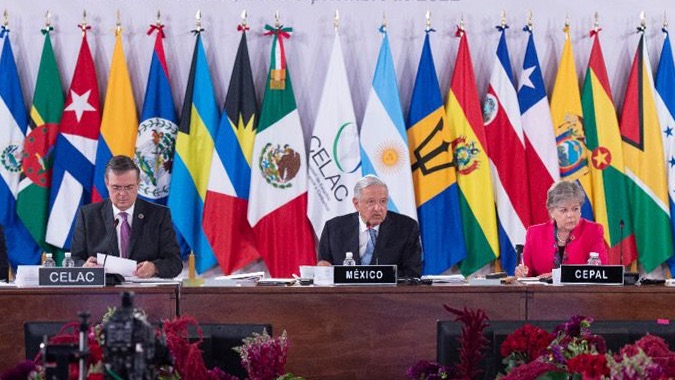Indigenous Rights and Self-Determination in South America: Navigating Challenges, Celebrating Progress
The fight for indigenous land rights and self-governance in South America is a complex and ongoing narrative marked by both significant challenges and inspiring progress. For generations, indigenous communities have championed the recognition and protection of their ancestral lands, striving to maintain their unique cultures and traditions while navigating the pressures of a rapidly changing world. This article explores the multifaceted issues confronting these communities, highlighting the obstacles they face and the strides they are making toward a more equitable and sustainable future.
The Persistent Struggle for Land Recognition and Protection: A fundamental challenge lies in securing legal recognition and effective protection of indigenous territories. Historical injustices, including land grabbing and encroachment, have resulted in displacement, marginalization, and the erosion of traditional ways of life. The ongoing struggle to secure land titles and prevent further encroachment remains a central focus for many communities.
Environmental Threats and the Impact of Extractive Industries: Indigenous lands often harbor rich biodiversity and vital natural resources, making them targets for deforestation, mining, and other extractive industries. These activities not only threaten the livelihoods and cultural heritage of indigenous peoples but also contribute significantly to climate change and the loss of irreplaceable ecosystems. The lack of meaningful consultation and free, prior, and informed consent (FPIC) further exacerbates these injustices.
Limited Autonomy and the Pursuit of Self-Governance: The desire for self-determination and the right to govern their own affairs is a deeply held aspiration for many indigenous communities. However, navigating complex bureaucratic processes and often unsupportive legal frameworks continues to hinder their ability to fully exercise these fundamental rights.
Addressing Deep-Rooted Inequality and Poverty: Indigenous populations across South America face disproportionately high rates of poverty and inequality. Limited access to quality education, healthcare, and economic opportunities perpetuate a cycle of disadvantage, hindering social mobility and undermining efforts towards self-sufficiency.
Combating Social Marginalization and Discrimination: Systemic discrimination and social marginalization limit indigenous peoples' political participation, access to justice, and overall well-being. Addressing these deeply ingrained prejudices is crucial for achieving meaningful progress.
Protecting and Revitalizing Indigenous Languages and Cultures: The preservation of indigenous languages and cultural practices is paramount for maintaining identity, collective memory, and cultural resilience. Efforts to revitalize languages and promote cultural heritage are gaining momentum, recognizing their inherent value and contribution to a richer global society.
Empowering Indigenous Women: Gender inequality within indigenous communities represents a critical challenge. Promoting gender equality, protecting the rights of indigenous women, and fostering their leadership are essential for achieving sustainable social development.
Progress and Pathways Forward: Despite the considerable challenges, there is evidence of progress. Land restitution initiatives, albeit slow and often under-resourced, are gradually returning ancestral lands to indigenous communities. Increasingly, indigenous-led conservation efforts are demonstrating the effectiveness of traditional knowledge in environmental stewardship and sustainable resource management.
The Role of International Collaboration: International cooperation and partnerships are vital in supporting indigenous communities' struggles. Sharing best practices, providing technical assistance, and advocating for policy changes at the international level can significantly amplify the impact of local efforts.
Integrating Indigenous Knowledge Systems: Integrating indigenous knowledge systems into education and development planning recognizes their value and promotes intercultural dialogue and sustainable practices. This approach respects indigenous expertise and fosters more inclusive and effective solutions.
Investing in Indigenous Youth: Empowering indigenous youth is crucial for the continuity of indigenous cultures and the development of future leaders who can champion their communities' rights and aspirations.
The Importance of Legal Reform: Strong legal frameworks are needed to protect indigenous rights, including land rights, self-governance, and cultural preservation. These frameworks must be effectively enforced to ensure that they provide real and tangible protection.
Building Solidarity and Fostering Unity: A collective effort is needed to address the challenges facing indigenous communities. Solidarity among individuals, organizations, and governments is essential to create a more inclusive and equitable society where indigenous rights are respected and protected.
Conclusion: A Path Towards Justice and Sustainability: The challenges faced by indigenous communities in South America are multifaceted and deeply rooted. However, the determination and resilience of these communities, coupled with growing international support, offer a beacon of hope. By understanding and addressing the complexities of these issues, we can collectively strive toward a more just and sustainable future where indigenous rights are fully respected and their unique cultures thrive. The journey towards empowerment and positive change requires sustained commitment, collaborative action, and a steadfast belief in the inherent worth and dignity of indigenous peoples.
We encourage a continued conversation on these vital issues. Share your thoughts, experiences, and ideas on how we can further support the fight for indigenous rights and self-determination in South America. #IndigenousRights #SouthAmerica #SelfDetermination #LandRights #CulturalPreservation



